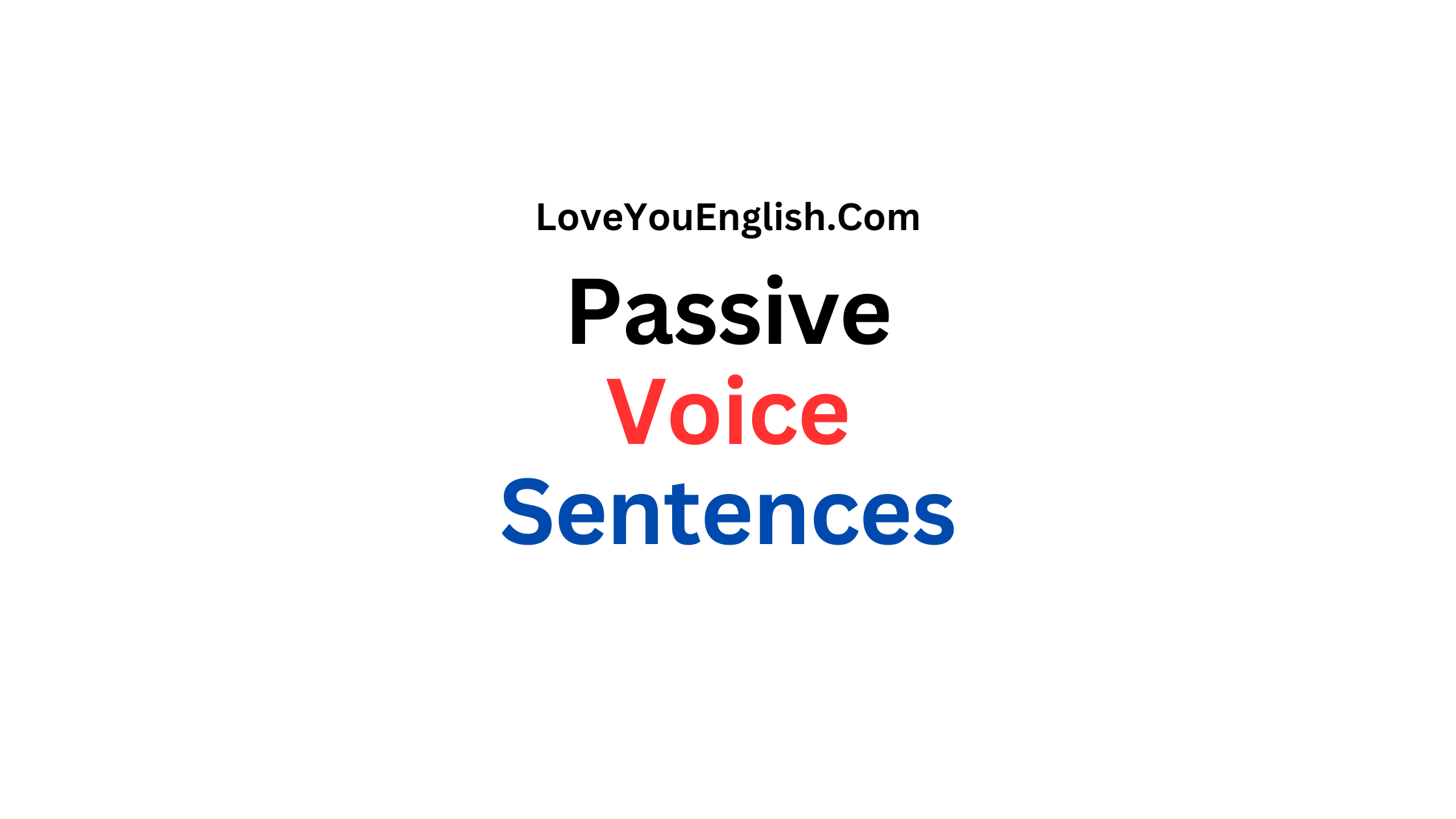100 Passive Voice Sentences in English
The passive voice is used in English when the focus is on the action rather than the person doing the action.
It is commonly used in formal writing, news reports, instructions, and everyday communication.
Many English learners find passive voice difficult, but with simple examples, it becomes easy to understand and use correctly.
This blog post, “100 Passive Voice Sentences in English,” is specially created for students, beginners, and ESL learners.
In this post, you will find easy and commonly used passive voice sentences in English.
These sentences will help you understand sentence structure, improve your grammar, and use passive voice confidently in speaking and writing.
Here are 100 sentences using passive voice:
The book was read by the student.
The cake was baked by the chef.
The letter was sent by the postman.
The movie was watched by the audience.
The song was sung by the choir.
The homework was completed by the children.
The car was repaired by the mechanic.
The meal was prepared by the cook.
The house was cleaned by the maid.
The flowers were planted by the gardener.
The decision was made by the committee.
The package was delivered by the courier.
The presentation was given by the manager.
The test was taken by the students.
The picture was painted by the artist.
The tree was cut down by the lumberjack.
The patient was treated by the doctor.
The song was written by the composer.
The room was decorated by the designer.
The clothes were washed by the laundry service.
The match was won by the team.
The news was reported by the journalist.
The essay was written by the student.
The phone call was answered by the receptionist.
The garden was watered by the neighbor.
The email was sent by the administrator.
The play was performed by the actors.
The building was constructed by the workers.
The dinner was served by the waiter.
The meeting was scheduled by the secretary.
The song was played by the band.
The trophy was awarded by the judge.
The invitation was received by the guest.
The bridge was built by the engineers.
The puzzle was solved by the child.
The message was delivered by the messenger.
The concert was attended by the fans.
The movie was directed by the filmmaker.
The report was written by the analyst.
The product was designed by the team.
The birthday party was organized by the friends.
The complaint was handled by the customer service representative.
The order was placed by the customer.
The policy was approved by the board.
The monument was visited by the tourists.
The document was signed by the CEO.
The rules were followed by the participants.
The fire was extinguished by the firefighters.
The experiment was conducted by the scientist.
The project was completed by the team.
The magazine was read by the passengers.
The road was paved by the construction crew.
The dish was tasted by the food critic.
The game was played by the children.
The jewelry was stolen by the thief.
The lawn was mowed by the gardener.
The law was passed by the government.
The book was written by the author.
The story was told by the grandmother.
The tree was planted by the volunteers.
The window was broken by the baseball.
The song was recorded by the singer.
The letter was typed by the secretary.
The website was designed by the developer.
The budget was approved by the finance committee.
The project was delayed by the contractor.
The painting was admired by the visitors.
The piano was played by the musician.
The bill was paid by the customer.
The photograph was taken by the photographer.
The complaint was filed by the resident.
The lesson was taught by the teacher.
The application was reviewed by the hiring manager.
The play was written by the playwright.
The bridge was inspected by the engineer.
The cake was frosted by the baker.
The email was received by the recipient.
The password was changed by the user.
The alarm was set by the homeowner.
The contract was signed by the client.
The article was published by the editor.
The balloon was popped by the pin.
The seminar was attended by the participants.
The homework was checked by the teacher.
The goal was scored by the player.
The birthday card was made by the child.
The lesson plan was created by the educator.
The invitation was accepted by the guest.
The bill was drafted by the legislator.
The task was delegated by the supervisor.
The fabric was cut by the tailor.
The notes were written by the student.
The window was cleaned by the janitor.
The solution was proposed by the consultant.
The menu was prepared by the chef.
The horse was ridden by the jockey.
The announcement was made by the spokesperson.
The charity event was organized by the committee.
The test results were analyzed by the scientist.
The emergency plan was activated by the authorities.
Conclusion: Passive Voice Sentences in English
Learning passive voice sentences helps you understand English better, especially in formal writing, news reports, academic English, and spoken communication.
Through these 80 passive voice sentences, you can clearly see how the focus shifts from who does the action to what happens.
Regular practice of passive voice will improve your grammar accuracy, sentence structure, and confidence while speaking and writing English.
Try to identify passive sentences while reading, convert active sentences into passive, and use them in your daily practice.
Remember, grammar becomes easy when you use it regularly, not when you only memorize rules. Keep practicing, stay consistent, and your English will improve step by step.






